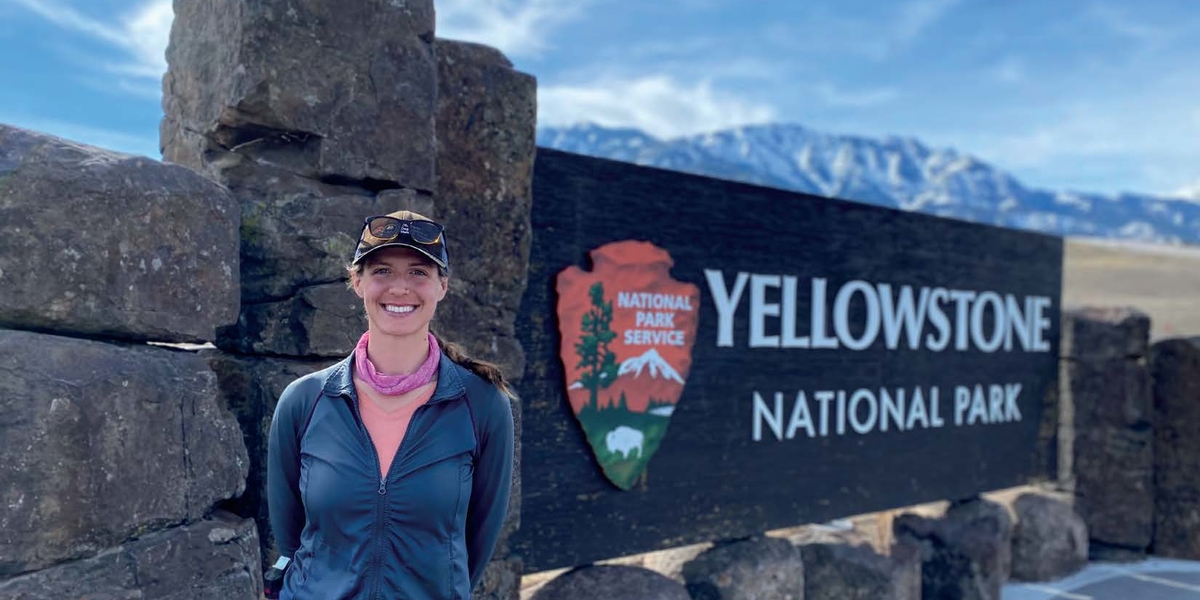
Maddy Jackson (B.S. Ecology, Evolution and Behavior, ’17) has experienced things most of us never will, including stumbling into the remains of a grizzly bear after a wolf pack’s investigation. As a wildlife technician with the Yellowstone Wolf Project — one of the longest running predator-prey studies in the country — she has a unique vantage point on the elusive canids.
Jackson started volunteering with the winter study at Yellowstone in 2018 and has since completed both winter and summer studies focused on wolf predation patterns and behavior. In her current role, she spends lots of time tracking the movements of the park’s roughly 100 wolves using radio collars and a telemetry antenna that resemble elaborate “bunny ears” from an old television.
Winter is prime time for wolf research. Snow makes wolves easier to spot, plus packs hunt together more during the winter. As part of the winter study team, Jackson and her colleagues occasionally trek to sites where wolves have brought down prey, but a lot of the time Jackson tracks activity from afar using a spotting scope.
“You only get as close as you have to to see,” says Jackson who emphasizes that avoiding encounters with wildlife is the highest priority, and that means steering clear of fresh kills and being vigilant when in more remote areas.
A career in wildlife research isn’t for the faint of heart. It requires a high level of fitness and more than average stores of resilience. Understanding your limits is also key.
“We do a lot of hiking in very rugged terrain in harsh conditions,” says Jackson. “When you’re in the wilderness, and it’s really cold, or you’re being destroyed by mosquitoes, you have to be able to calm yourself and get the job done, and not be a drag on the rest of the team.”
Jackson has had lots of opportunities to get used to roughing it. As an undergraduate, she spent summers at Itasca Biological Station and Laboratories.
“When I was a freshman, I took classes there my first summer. I loved it. And I was like, ‘I want to spend every summer here.’ So I did,” Jackson says. “I was a teaching assistant for the mammalogy class. I think I really fell in love with field biology through that.”
From Itasca, Jackson moved on to volunteer positions in Minnesota, Montana and Idaho. Looking ahead, Jackson is interested in exploring the intersection of wildlife, disease and public health. She’s also hoping to help make access to careers in her field more accessible citing an expectation that students and those early in their careers will spend significant time as unpaid volunteers and low pay as top issues.
“My heart is in wildlife,” says Jackson. “I’ve put lots of blood, sweat and tears literally into this career. It’s not easy by any means, but it is very rewarding.”
— Stephanie Xenos